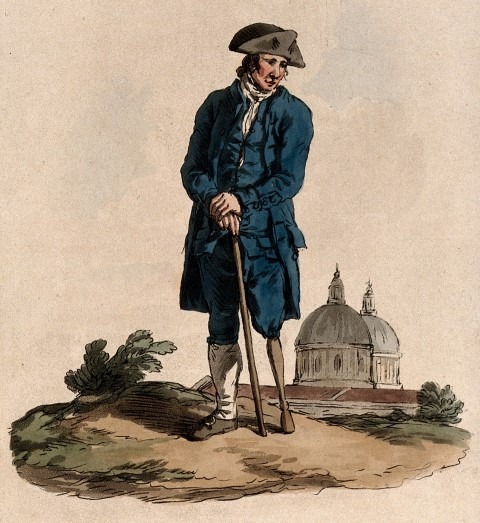The psychological game “Wooden leg”
In the book “What Play Do You Want?”, Eric Berne, the founder of transactional analysis, describes the various psychological games that people use in everyday life. One such game is also called “Wooden leg”. This game is based on the use of real or imagined limitations to justify an unacceptable behavior or to avoid responsibility. The name of the game comes from the metaphor of a person with a wooden leg who uses his disability as an excuse for not doing what he could or should do.
Definition of the game “Drvena noga” (Wooden leg)
“Drvena noga” is a game that involves the role of the victim, where a person uses their physical, emotional or psychological shortcomings as an excuse to avoid obligations, responsibilities or changes. This game involves interpersonal interactions in which the individual can experience challenge, validate his or her failures or avoid change. The basic dynamic of the game is that a person with a “wooden leg” seeks confirmation from others that their situation is recognized as justification for their inaction.
Examples of the game “Wooden Leg” in practice
Physical limitation as an excuse: Imagine a person who has lost one arm in an accident. Instead of focusing on what they can achieve with one arm, they use their limitation as an excuse to avoid various issues and responsibilities. For example, they may say, “I can’t go to that meeting because I can’t carry all the necessary materials with one hand.” Instead of looking for a solution, they dwell on their limitation.
How You Learned to Silence Your Needs
Emotional limitation as an excuse: A person who has gone through a difficult relationship may play the “wooden leg” game, using their emotional pain as an excuse to avoid social interaction. For example, they may say, “I can’t go out tonight because I still feel bad about the breakup.” Although it is important to recognize and process emotional pain, using past trauma as an excuse all the time can be a form of this game.
Psychological limitation as an excuse: Individuals with certain psychological conditions, such as anxiety or depression, can also use their diagnosis as an excuse for not reaching their goals. For example, someone may say: “I will never get that job because I am anxious and cannot handle the pressure.” This game allows the person to avoid dealing with challenges and potential failures.
Why do people play “Drvenu nogu”?
People often play “Drvenu nogu” because of the need for enjoyment, avoidance of feelings of failure, or simply because they are used to being in the role of the victim. This game allows a person to avoid taking responsibility for their actions or failures. Using an excuse in the form of physical, emotional or psychological limitations gives the person a reason not to try something new or different, thus avoiding potential risks and the discomfort of change.
How to quit the game “The wooden leg”?
The first step in quitting this game is to be aware of it. A person needs to recognize when they use their limitations as an excuse. Understanding that everyone has limitations, but that they do not have to negatively define all aspects of life, is key to progress. At the same time, support and encouragement from the environment can help a person to face challenges instead of avoiding them. By working on personal growth, individuals can learn how to recognize their limitations, accept them, or not let them prevent them from achieving their goals and realizing their full potential.
“Drvena noga” je psihološka igra koja može ograničiti osobni rast i razvoj. Prepoznavanje igre, razumijevanje njezinih uzroka i posljedica, te aktivno traženje načina kako prekinuti ciklus igre ključni su koraci u procesu osobnog napretka. In the end, although physical, emotional and psychological limitations can be substantial and significant, it is important to recognize that they should not define or limit us. The choice to take responsibility for our lives, to face the challenges, is the key to freeing ourselves from this game and living a fulfilled life.

Keywords: psychological games, wooden leg, transactional analysis, somatic experiencing therapy, psychotherapist zagreb, gestalt therapy, Licensed therapist near me in Manhattan NYC, Affordable therapy services in New York State, Holistic psychotherapy sessions in NYC, Somatic Experiencing therapy for trauma recovery in New York City, NARM therapy in Brooklyn, Licensed couples therapy in Manhattan, Gestalt therapy near me in NYC, Marriage counseling in Queens NYC, Therapy for anxiety treatment in NYC, Experienced psychotherapist in New York, Licensed psychotherapist near me in NYC, Somatic Experiencing therapy sessions in New York, Trauma therapy and counseling in Manhattan, Gestalt therapy sessions in New York City, Therapy sessions for emotional regulation in New York, Trauma therapy near me in Brooklyn New York, Licensed mental health therapist in Manhattan NYC, Depression therapy in New York, New York City therapist experienced in PTSD treatment
*Photo: GettyImages
*Contact: Arrange appointment
*For companies: https://creativemanager.eu
You Deserve Peace, Not Just Relief








